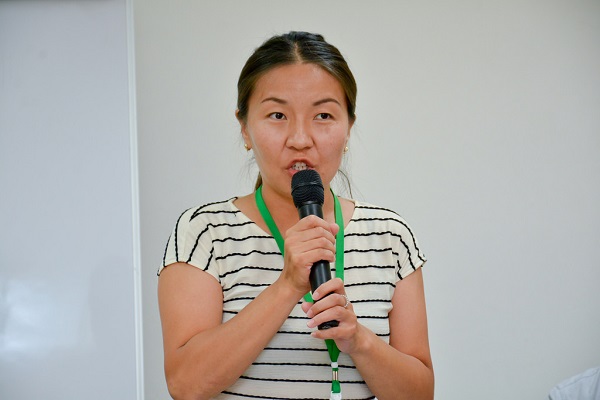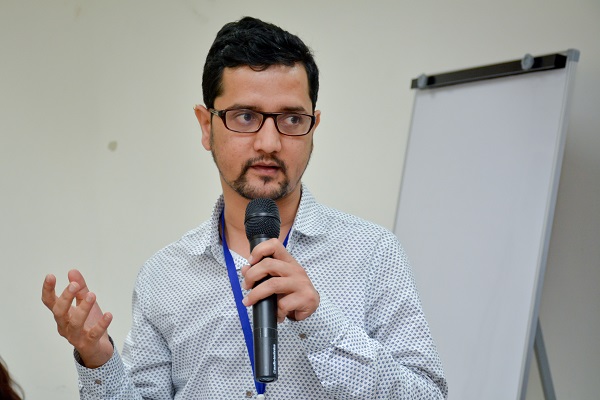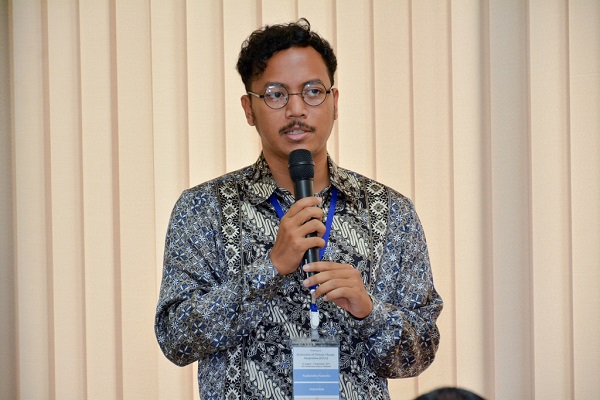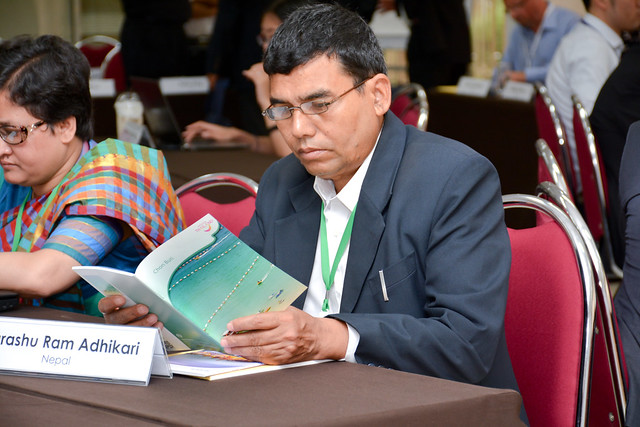In September 2017, another intake of the Economics of Climate Change Adaptation (ECCA) Programme wrapped up in Ayutthaya, Thailand, providing 29 participants from 13 countries across Asia with advanced techniques to evaluate climate change adaptation initiatives.
Over the course of two weeks, participants examined a variety of topics – from the macroeconomic assessment of climate impacts, to the analysis of climate change on economic sectors such as agriculture, forestry and water. A number of sessions focused on the use of surveys, sampling and data analysis, adaptation models, and processes for conducting effective cost-benefit analysis.
Established in 2012 through a collaboration between UNDP, USAID, Yale University, the Asian Development Bank and Global Water Partnership, the capacity-building programme is now being hosted by the Asian Institute of Technology (AIT).
Participants from Mongolia, Nepal and Indonesia shared their experience from the training and how they will apply the knowledge back home.
Ms. Chuluunkhuu Baatar, Managing Officer for Climate Finance and National Communications, Ministry of Environment and Tourism, Mongolia

“I don’t have a background in economics, so I gained a great deal of new knowledge through the ECCA course these past weeks. As Managing Officer for Climate Finance and National Communications at the Ministry of Environment and Tourism, I may not be personally conducting economic analyses. However, I can now better understand what methodologies and models are available and which to apply. I can also better understand what data is needed or missing in assessing a climate adaptation project or policy.
“Projections show climate change is going to bring more change. It is important to understand the impacts on different sectors of the economy, and the potential costs and benefits of response.
“With support from UNDP, the Government of Mongolia is currently finalizing a proposal for the Green Climate Fund. As part of the course this week, I was able to conduct a cost-benefit analysis which I can check against that of technical experts.”
Mr Basanta Paudel, National Adaptation Plan (NAP) Officer, NAP Formulation Process, Ministry of Population and Environment, Nepal

“Given the current requirements of the Green Climate Fund and other funds for economic analyses and assessments as part of proposals, an understanding of the economics of climate change is really essential.
“I gained a lot from the ECCA training. The content was all completely new for me – my background is in environmental science, not economics. I now understand the different tools available to assess the costs and benefits of action. Furthermore, when I go home to Nepal, I can apply the knowledge to Nepal's NAP process and the required adaptation appraisals (of costs and benefits) that form part of that.
”In Nepal, risks associated with extreme weather, including in particular floods, and glacier lake outburst floods (GLOF) are increasing with climate change. Impacts of climate-driven events range from those on agriculture, livelihoods, biodiversity, health (the upper regions are becoming more hospitable to mosquitos and therefore disease), tourism, and so on.
“We need to focus on adaptation strategies, securing more financing from international donors to support action, and on building networks and collaborative partnerships across various sectors of the economy.”
Mr Yudiandra Yuwono from Indonesia, Research Associate, Sustainability and Resilience Company

“In climate adaptation work, the process of economic analysis applies to almost everything, informing strategies and plans for action.
“The benefit for me of the training has been that, while I may not conduct economic analyses myself, I can speak the language of economists and understand their models and methods. This training will help me somewhat bridge the gap with technical experts.
“One practical way I will apply what I learned is in relation to a UNDP-supported proposal for the Green Climate Fund, focused on adapting to the impacts of climate change on agriculture in the eastern part of Indonesia. We are currently in the final stages of strengthening the proposal with the National Designated Authority, the Ministry of Finance, and other stakeholders, with the goal to submit by early 2018.”
Marie Tomova, UNDP Bangkok, mari.tomova@undp.org

